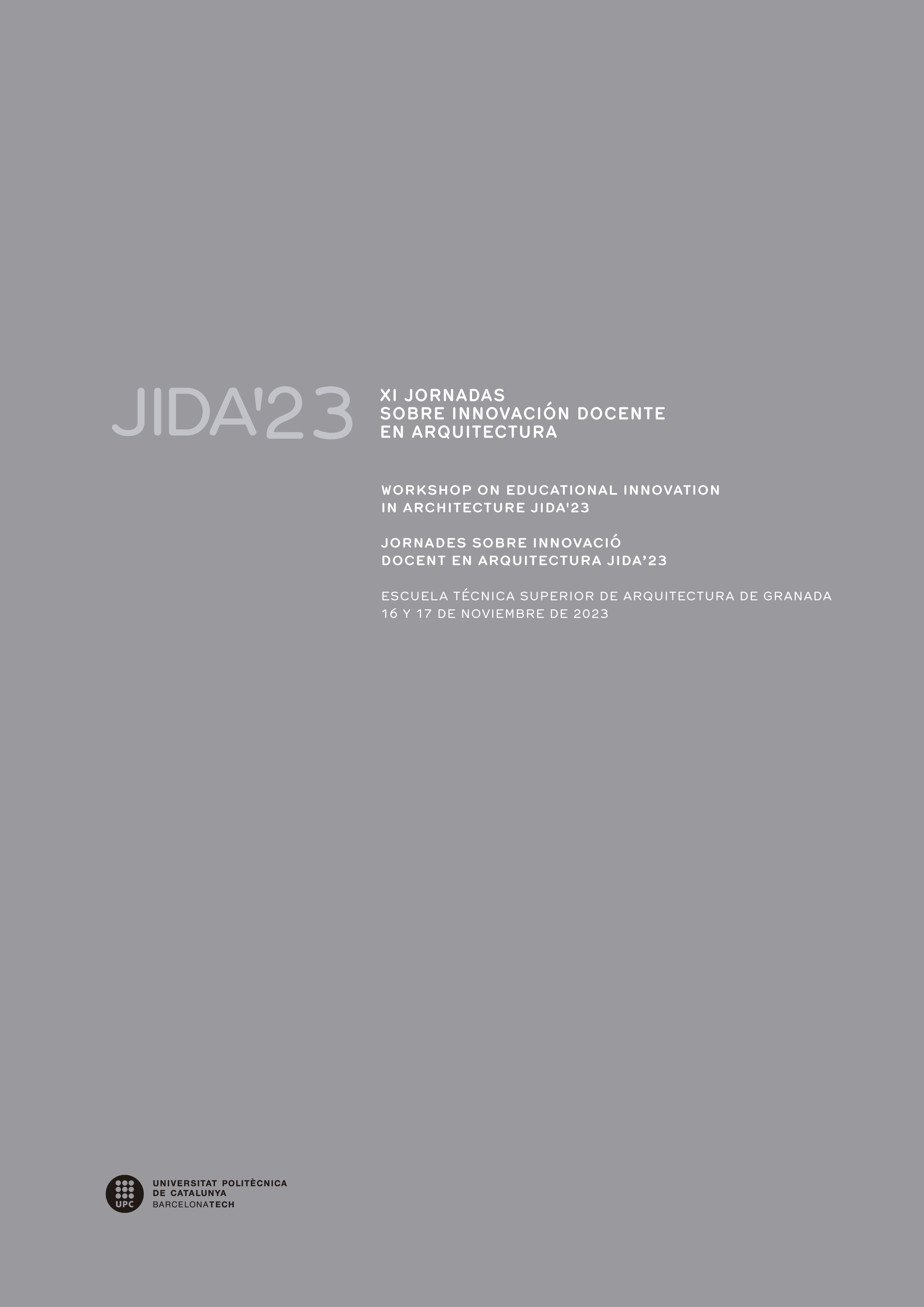Red de roles: role-play para el aprendizaje sobre la producción social del hábitat
DOI:
https://doi.org/10.5821/jida.2023.12272Palabras clave:
juego de roles, trabajo colaborativo, producción social del hábitat, vivienda social en Iberoamérica, colaboración interdepartamentalResumen
Red de Roles es un Proyecto de Innovación Educativa que aspira a la toma de conciencia por parte del alumnado de Arquitectura sobre la necesidad de integrar en sus procesos de trabajo las demandas, inquietudes e intereses de los diversos agentes que intervienen en la producción social del hábitat. Mediante la aplicación de técnicas de role-play a un taller de Proyectos (en colaboración con la asignatura de Historia del Arte), se plantea una simulación ‘gamificada’ en sucesivos ciclos de trabajo en la que los alumnos van asumiendo diferentes roles e intercambiando información verbal y gráfica. Tras un primer curso piloto, se realiza una evaluación crítica de resultados con el objetivo de identificar las debilidades y fortalezas del método. Para ello, se trabaja sobre tablas y diagramas analíticos en los que se cuantifican los niveles de transmisión de información entre los diferentes roles, así como la calidad de los trabajos producidos en cada fase.
Citas
Andreu, María Ángeles, García, Miguel, y Mollar, Miguel. 2005. «La simulación y juego en la enseñanza-aprendizaje de lengua extranjera». Cuadernos Cervantes, 11(55): 34-38.
Arenas Laorga, Enrique et al. 2020. «Multi-Player City. La producción de la ciudad negociada: Simulaciones Docentes». Jornadas sobre Innovación Docente en Arquitectura, 18: 780-791.
Bonta, Juan Pablo. 1979. «Simulation Games in Architectural Education». Journal of Architectural Education, 33 (1): 12-18.
Castellano Pulido, Francisco Javier et al. 2020. «Taller vertical y juego de roles en el aprendizaje de programas arquitectónicos emergentes». Jornadas sobre Innovación Docente en Arquitectura, 18: 1028-1039.
Fitzgibbon, James W. y Thomson, Thomas L. «Design Role-Playing at the School of Architecture». Journal of Architectural Education, 23 (4): 36-39.
Lee Camacho, José Ignacio. 2021. Dispositivos pedagógicos de iniciación al proyecto arquitectónico. Tesis doctoral, E.T.S. Arquitectura (UPM).
Martín, Xus. 1992. «El role-playing, una técnica para facilitar la empatía y la perspectiva social». CL & E: Comunicación, lenguaje y educación, 15: 63-68.
Ortiz, Enrique. 2012. Producción social de la vivienda y el hábitat. Bases conceptuales y correlación con los procesos habitacionales. México: HIC.
Portugali, Juval. 2000. Self-organization and the City. Berlín: Springer Verlag.
Radford, A. D and Stevens, Garry. 1988. «Role-Play in Education: A Case Study from Architectural Computing». Journal of Architectural Education, 42(1): 18-23.
Solà-Morales, Manuel de. 1970. La ciudad y los juegos. Barcelona: ETSAB.
Swaffield, Simon R., & Barthelmeh, Michael R. 1995. «The designer as subject: role play as a teaching strategy in undergraduate design education». En Teaching from experience. Proceedings of ECLAS (European Council of Landscape Architecture Schools), Barcelona, 37-54.
Waisman, Marina. 1977. La estructura histórica del entorno. Buenos Aires: Ediciones Nueva Visión.






















